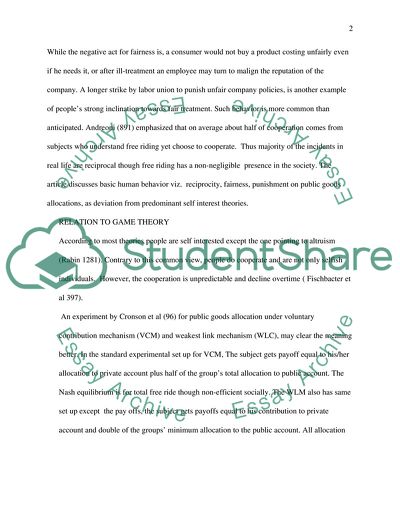Cite this document
(Public Good Provision, Punishment, Cooperation, and Defection Essay, n.d.)
Public Good Provision, Punishment, Cooperation, and Defection Essay. https://studentshare.org/social-science/1720953-public-good-provision-punishment-cooperation-and-defection
Public Good Provision, Punishment, Cooperation, and Defection Essay. https://studentshare.org/social-science/1720953-public-good-provision-punishment-cooperation-and-defection
(Public Good Provision, Punishment, Cooperation, and Defection Essay)
Public Good Provision, Punishment, Cooperation, and Defection Essay. https://studentshare.org/social-science/1720953-public-good-provision-punishment-cooperation-and-defection.
Public Good Provision, Punishment, Cooperation, and Defection Essay. https://studentshare.org/social-science/1720953-public-good-provision-punishment-cooperation-and-defection.
“Public Good Provision, Punishment, Cooperation, and Defection Essay”. https://studentshare.org/social-science/1720953-public-good-provision-punishment-cooperation-and-defection.


